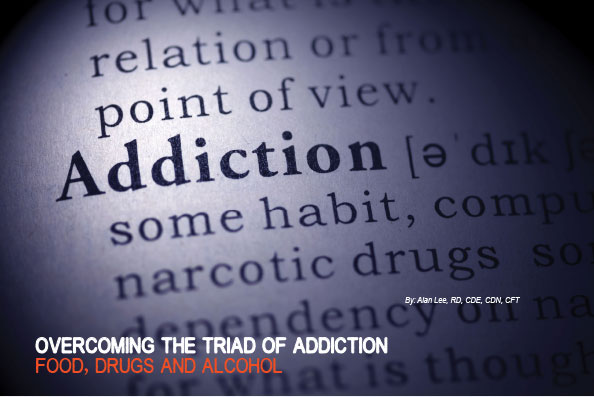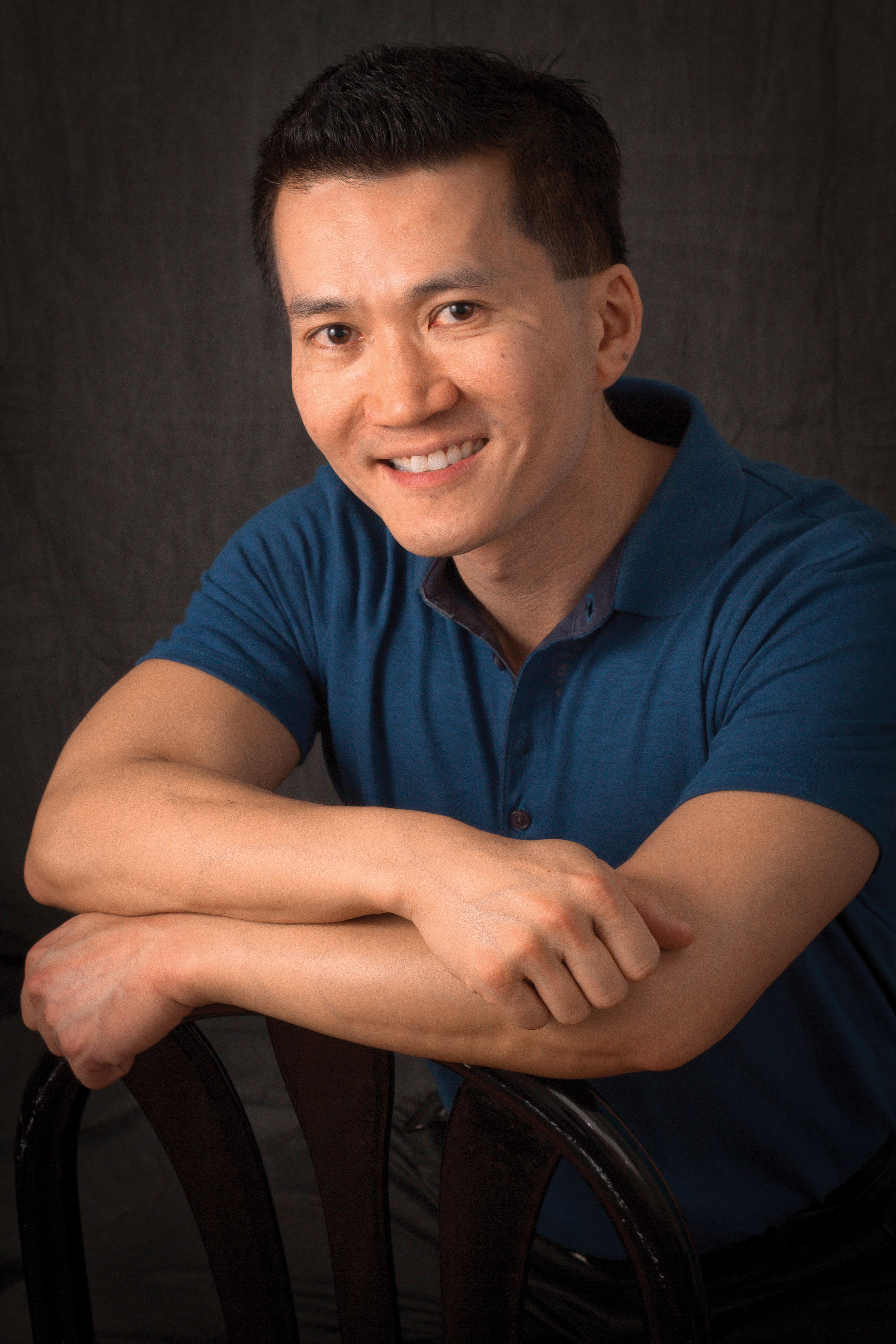HOME
PAST DIGITAL ISSUES
HIV/AIDS HOTLINES
HIV 101
POSITIVE PROFILES
ASO SPOTLIGHT
RECENT ARTICLES
HOW TO PAY FOR HIV TREATMENT
ADAP CRITERIA AND FORMULARIES
ASO LISTINGS
REVIEW OF HIV MEDICATIONS
2018 HIV/AIDS FUNDRAISING ACTIVITIES & EVENTS
ABOUT HIV POSITIVE! MAGAZINE
LINKS
SUBSCRIBE
CONTACT US
ADVERTISER INFORMATION

It is well established that drug addicts share many of the same behaviors as compulsive overeaters. Once you have overcome addiction to drugs and alcohol, many people unknowingly gravitate towards sugar, fat, and salt. The “reward” value associated with food in people living with HIV is tied to memory, emotions, as well as possible addiction transfer. Recent studies show that the brain’s rewards center for nutrition-related hormones (i.e. leptin and ghrelin) are connected to unhealthy behaviors like drugs, alcohol, and even gambling.
Weight gain is a common side effect of becoming and staying sober. Who can resist honey barbecue potato chips, cupcakes, ice cream, salted caramel popcorn, and white chocolate covered pretzels? It’s no wonder since food companies engineer very tasty and inexpensive foods that have that just right “bliss point” combination of sugar, fat, and salt to promote you to eat more and buy more. Those kinds of foods essentially make your brain go “haywire” and you are eating because the act of eating is extremely pleasurable regardless of how hungry you actually are. What can you do to overcome binge eating hyper-tasty empty calorie or less nutritious foods? Here are some ideas:
Just Say NO – Some people have “trigger foods” where the idea of “moderation” is not possible. Even someone like me who should know better cannot resist the temptation of Twizzlers. I will eat the entire bag of Twizzlers no matter the size, no matter how ill I feel. For me, Twizzlers are a “just say no” food. What is that for you? Of course, every now and then, you can have a small amount of potato chips or a candy bar. If you don’t, then you may obsess about the food until you actually eat it. But do not let it turn into a gateway for giving up on your healthy eating plan. A good rule of thumb is to have 9 meals out of 10 be sensible and allow for a small indulgence then.
Go Brown – Fiber keeps you fuller longer so you will not overeat later. Choose more “brown” grains that are unrefined and have more fiber in them like whole-grain bread, brown rice, whole-wheat pasta, quinoa, and oatmeal.
Go White – High protein foods take longer to empty from your stomach and satisfy hunger well. Choose more “white” lean proteins like tilapia, salmon, tuna, chicken breast, turkey breast, beans, soy milk, lowfat cheese, and egg whites.
Drink Up - Have more fluids- make sure you have at least eight cups of fluids like water, unsweetened tea, sparkling water, flavored seltzer, 1% milk, Crystal Light, and low-sodium tomato juice. FYI, I am not a fan of almond milk. It is low in protein and high in sugar in general.
More, More, More Everyday – Some people I see for nutritional counseling tell me they LOVE vegetables and fruits but when I ask them to recall what they ate for the last couple of days, many people do not come close to eating enough. So, eat DAILY more fresh and frozen vegetables like baby kale, cabbage, broccoli, carrots, cauliflower, lettuce, spinach, string beans, peas, and tomatoes.
Walk This Way -Aim to get 30 to 90 minutes of walking into your routine more than 4 times per week. If you are really already good at walking, then consider “arm pumping” by having your elbows close to your sides and arms bent to 90 degrees and swinging. Arm pumping gives you momentum, allows you to move faster, and makes the walking more intense.
What If I Am Still Struggling To Get Sober From Drugs and Alcohol?
Active drug use and hazardous alcohol use is a major predictor of poor adherence to HIV medications. It is hard enough to remember to take your medications reliably every day when you are sober. Just imagine how much harder it is to do when you are high.
The first step is to ask for help from your primary care provider. Some people can do it on their own, but it is better to have your care team help you. If you are happy with your current provider, then GREAT FOR YOU. But if you are not content with the care you are getting, then consider going to a place that has Federally Qualified Health Center (FQHC) or Federally Qualified Health Center Look-Alike (FQHC-LA) status. This status is given to community-based organizations that have met criteria for excellence to provide primary and preventive services (medical, mental health/substance abuse, and nutrition) to all persons of all ages regardless of their ability to pay or health insurance status. Many people have also found that “Twelve Step” programs (such as Alcoholics Anonymous or Narcotics Anonymous) are helpful.
A full recovery from addiction is possible when you deal with every aspect of your life. Overcoming the triad of food, alcohol, and drug addiction is not easy. It will take work on your part as well as reaching out at times and getting support from others. You can achieve balance in your life by making small steps to improve your health that will add up to overall better changes to your life. For many people, the problem is not so much a lack of motivation but rather a lack of planning to get to their goals. Ask for help and don’t do it all at once, but eventually do overcome the triad of addiction to stay sober and lead the fullest life possible for you.
About the author:
 Alan Lee, RD, CDE, CDN, CFT has over 17 years of experience as a nutritionist for people living with chronic diseases such as HIV, hepatitis C, and diabetes. He works as a primary care dietitian at The Family Health Center Of Harlem and the APICHA Community Health Center. He is also a nutrition consultant for Albert Einstein College Of Medicine, Division Of Substance Abuse in the Hepatitis C Program, and TOUCH, Inc. in Rockland County, NY. He maintains a private practice based in NYC and is a globally recognized speaker on nutrition and HIV. For the last five years, he has been a special guest speaker at Teacher’s College at Columbia University for their Medical Nutrition Therapy course on HIV nutrition. He can be reached at (212) 229-2298 and AlanLeeRD@yahoo.com.
Alan Lee, RD, CDE, CDN, CFT has over 17 years of experience as a nutritionist for people living with chronic diseases such as HIV, hepatitis C, and diabetes. He works as a primary care dietitian at The Family Health Center Of Harlem and the APICHA Community Health Center. He is also a nutrition consultant for Albert Einstein College Of Medicine, Division Of Substance Abuse in the Hepatitis C Program, and TOUCH, Inc. in Rockland County, NY. He maintains a private practice based in NYC and is a globally recognized speaker on nutrition and HIV. For the last five years, he has been a special guest speaker at Teacher’s College at Columbia University for their Medical Nutrition Therapy course on HIV nutrition. He can be reached at (212) 229-2298 and AlanLeeRD@yahoo.com.
Copyright 2018, Positive Health Publications, Inc.
This magazine is intended to enhance your relationship with your doctor - not replace it! Medical treatments and products should always be discussed with a licensed physician who has experience treating HIV and AIDS!